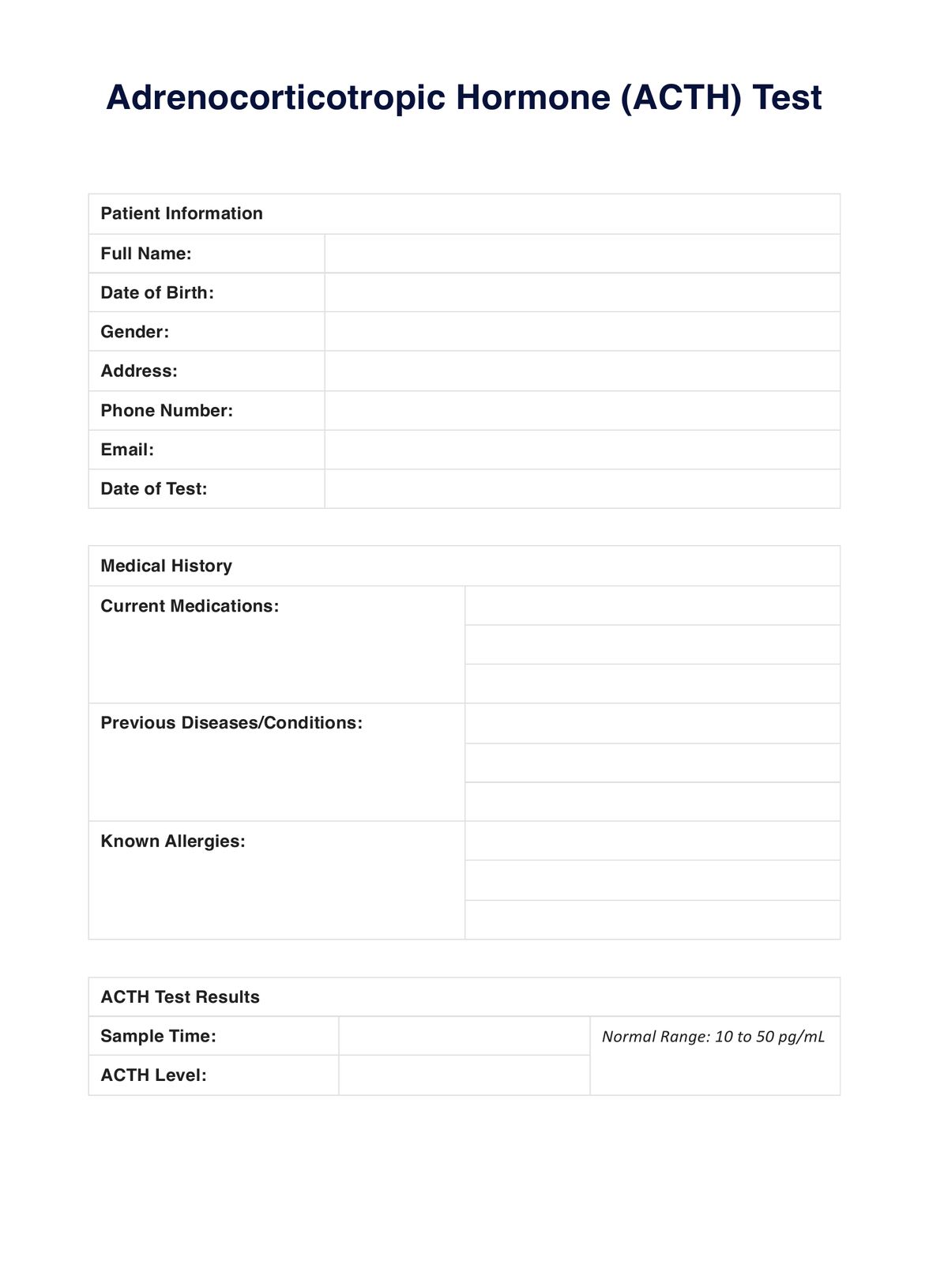Carepatron offers an intuitive interface tailored for ACTH tests, ensuring data accuracy and ease of interpretation. Its platform supports a range of medical tests, making it a versatile choice for professionals.

Adrenocorticotropic Hormone (ACTH)
Explore our guide on the Adrenocorticotropic Hormone (ACTH) Test. Understand its importance & benefits, and optimize your practice with the Carepatron app.
Use Template
Adrenocorticotropic Hormone (ACTH) Template
Commonly asked questions
Data protection is paramount for Carepatron. The app utilizes advanced encryption measures to safeguard all medical data, ensuring security from potential breaches.
Absolutely! Carepatron supports various medical tests, making it a comprehensive solution for varied healthcare diagnostic needs.
EHR and practice management software
Get started for free
*No credit card required
Free
$0/usd
Unlimited clients
Telehealth
1GB of storage
Client portal text
Automated billing and online payments











